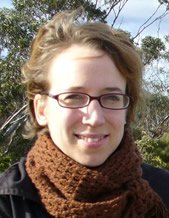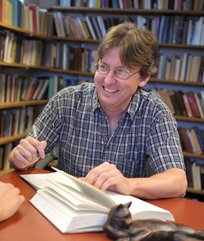International philosophers debate existence of ‘objective moral truths’ at SU Aug. 14-16
Conference showcases junior, senior scholars

More than 30 internationally renowned ethicists and epistemologists are converging at Syracuse University for SPAWN (Syracuse Philosophy Annual Workshop and Network), the philosophy department’s annual summer conference, running August 14-16. The theme of this year’s conference is “Normative Realism,” a view of ethics that claims the existence of objective moral truths.
All events and activities take place in SU’s Schine Student Center (304A-C), and are by invitation-only. People interested in attending should contact Hille Paakkunainen, assistant professor of philosophy, at hpaakkun@syr.edu, or Ben Bradley, associate professor of philosophy and department chair, at wbradley@syr.edu.
SPAWN is made possible by the Alice Hooker ’34 Endowed Fund for Philosophy, with additional support from The Central New York Humanities Corridor. More information about SPAWN is available here.
“There are many varieties of normative realism,” says Paakkunainen, an expert in ethics and philosophy of action. “A normative realist is someone who thinks there are facts about what we ought to do and how we ought to live, and that these facts exist independently of what we happen to think about the matter."
“It is the view that there really are norms, such as moral rules, and that they have binding force on us, no matter what we happen to think about it,” adds Bradley, an ethicist who studies philosophy of death.
Since its inception in 2005, SPAWN has served as a training ground for up-and-coming philosophers, hence the title. “SPAWN enables junior faculty members to deliver papers that are commented on by senior participants, instead of the other way around,” says Robert Van Gulick, a philosophy professor who founded the conference. “Each session consists of opening remarks by a senior commentator, followed by a 10- to 15-minute reply by the author, and then an hour of open discussion. This way, rising scholars have instant access to constructive guidance and support from their mentors."
All events and activities take place in SU’s Schine Student Center (304A-C), and are by invitation-only. People interested in attending should contact Hille Paakkunainen, assistant professor of philosophy, at hpaakkun@syr.edu, or Ben Bradley, associate professor of philosophy and department chair, at wbradley@syr.edu.
SPAWN is made possible by the Alice Hooker ’34 Endowed Fund for Philosophy, with additional support from The Central New York Humanities Corridor. More information about SPAWN is available here.
“There are many varieties of normative realism,” says Paakkunainen, an expert in ethics and philosophy of action. “A normative realist is someone who thinks there are facts about what we ought to do and how we ought to live, and that these facts exist independently of what we happen to think about the matter."
“It is the view that there really are norms, such as moral rules, and that they have binding force on us, no matter what we happen to think about it,” adds Bradley, an ethicist who studies philosophy of death.
Since its inception in 2005, SPAWN has served as a training ground for up-and-coming philosophers, hence the title. “SPAWN enables junior faculty members to deliver papers that are commented on by senior participants, instead of the other way around,” says Robert Van Gulick, a philosophy professor who founded the conference. “Each session consists of opening remarks by a senior commentator, followed by a 10- to 15-minute reply by the author, and then an hour of open discussion. This way, rising scholars have instant access to constructive guidance and support from their mentors."

This year’s conference features participants from both sides of the Atlantic, including Oxford University (U.K.), University of Cambridge (U.K.), Stockholm University (Sweden), The Hebrew University of Jerusalem (Israel), University of Toronto, Harvard University, Princeton University, Cornell University, and others.
Paakkunainen anticipates a lively dialogue. “Philosophers tend to agree that the natural and social sciences do not, in and of themselves, discover facts about how we ought to live; the sciences, at most, tell us facts about how people in fact do live, as with anthropology,” she says. “And there is a palpable gap between facts about how people, in fact, live and facts about how they ought to live.”
She continues: “What philosophers disagree about, however, is the relationship between the ‘natural’ facts that the sciences investigate, and the normative facts about how we ought to live. Where in the ‘fabric of the world,’ if anywhere, are these putative normative facts? Are they somehow reducible to the natural facts, or are they somehow non-natural or supernatural? If science doesn't discover them, how do we know about them? How can our thought latch onto them?”
Administered by The SU Humanities Center, the CNY Humanities Corridor is a unique regional collaboration involving SU, Cornell, and the University of Rochester, as well as regional liberal arts institutions in seven different areas of research and humanistic inquiry. For more information, visit syracusehumanities.org/mellon.
Media Contact
Rob Enslin
